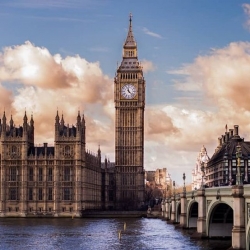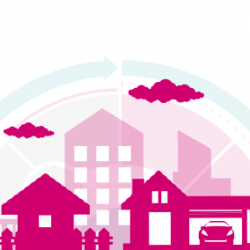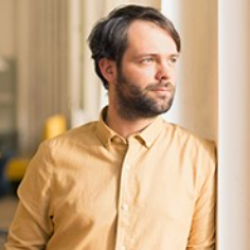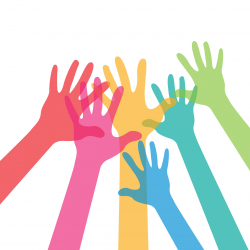To provide the best experiences, we use technologies like cookies to store and/or access device information. Consenting to these technologies will allow us to process data such as browsing behaviour or unique IDs on this site. Not consenting or withdrawing consent, may adversely affect certain features and functions.
The technical storage or access is strictly necessary for the legitimate purpose of enabling the use of a specific service explicitly requested by the subscriber or user, or for the sole purpose of carrying out the transmission of a communication over an electronic communications network.
The technical storage or access is necessary for the legitimate purpose of storing preferences that are not requested by the subscriber or user.
The technical storage or access that is used exclusively for statistical purposes.
The technical storage or access that is used exclusively for anonymous statistical purposes. Without a subpoena, voluntary compliance on the part of your Internet Service Provider, or additional records from a third party, information stored or retrieved for this purpose alone cannot usually be used to identify you.
The technical storage or access is required to create user profiles to send advertising, or to track the user on a website or across several websites for similar marketing purposes.
 During the pandemic, 1 in 4 (25 percent) employees say they’ve had no wellbeing check-ins from their workplace. The research from Mental Health First Aid (MHFA) England, of 2,000 employees, claims that almost a third (29 percent) of workers never discuss mental health in meetings with their employers. (more…)
During the pandemic, 1 in 4 (25 percent) employees say they’ve had no wellbeing check-ins from their workplace. The research from Mental Health First Aid (MHFA) England, of 2,000 employees, claims that almost a third (29 percent) of workers never discuss mental health in meetings with their employers. (more…)





 The cost of poor company culture is a staggering £20.2 billion per year, according to research from HR software provider
The cost of poor company culture is a staggering £20.2 billion per year, according to research from HR software provider 
 One of the most significant consequences of the 2008 economic crash was a remarkable shift
One of the most significant consequences of the 2008 economic crash was a remarkable shift 
 A new study on recruitment and workforce trends has crowned London as the world’s most desirable city to work in, with the UK capital holding onto the top spot, despite uncertainty around Brexit and the ongoing Covid-19 pandemic.
A new study on recruitment and workforce trends has crowned London as the world’s most desirable city to work in, with the UK capital holding onto the top spot, despite uncertainty around Brexit and the ongoing Covid-19 pandemic. 
 The UK Green Building Council (
The UK Green Building Council (
 UK employers claimed £24 billion of free labour last year because of workers doing unpaid overtime, according to new analysis published by the
UK employers claimed £24 billion of free labour last year because of workers doing unpaid overtime, according to new analysis published by the 
 Employers are now more aware of their employee’s personal situation and family commitments than they were pre Covid-19, according to the
Employers are now more aware of their employee’s personal situation and family commitments than they were pre Covid-19, according to the 
 Investment in digital technology is set to increase UK GDP by £232bn (6.9 percent) in 2040, according to a new
Investment in digital technology is set to increase UK GDP by £232bn (6.9 percent) in 2040, according to a new 
 The COVID-19 pandemic is driving a fundamental shift in the way companies operate, accelerating the need for an adaptable and agile workforce to drive business success. According to
The COVID-19 pandemic is driving a fundamental shift in the way companies operate, accelerating the need for an adaptable and agile workforce to drive business success. According to 
 The Covid-19 pandemic has had an unprecedented effect on the way in which we work and has brought in to focus the challenges around mental health and wellbeing. The recognition that we are in the midst of the biggest mental health crisis since the Second World War brings the challenge in to stark focus. Time to Talk Day (today) aims to get the nation talking more openly about mental health, and there could not be a better time for it. Research from
The Covid-19 pandemic has had an unprecedented effect on the way in which we work and has brought in to focus the challenges around mental health and wellbeing. The recognition that we are in the midst of the biggest mental health crisis since the Second World War brings the challenge in to stark focus. Time to Talk Day (today) aims to get the nation talking more openly about mental health, and there could not be a better time for it. Research from 
 When the COVID-19 crisis hit the UK in March 2020, many commented that the virus didn’t discriminate and that its impact would be felt equally by everyone. However, as highlighted in Nuffield Health’s
When the COVID-19 crisis hit the UK in March 2020, many commented that the virus didn’t discriminate and that its impact would be felt equally by everyone. However, as highlighted in Nuffield Health’s 







February 5, 2021
Workplace things we have missed, and those we hope to regain
by Emma Morley • Comment, Technology, Wellbeing, Workplace design